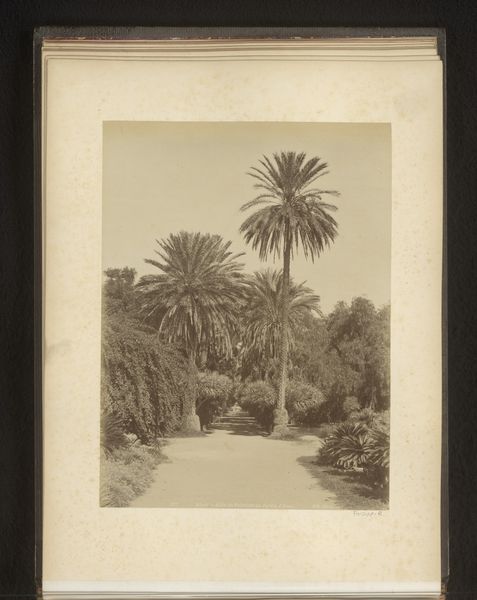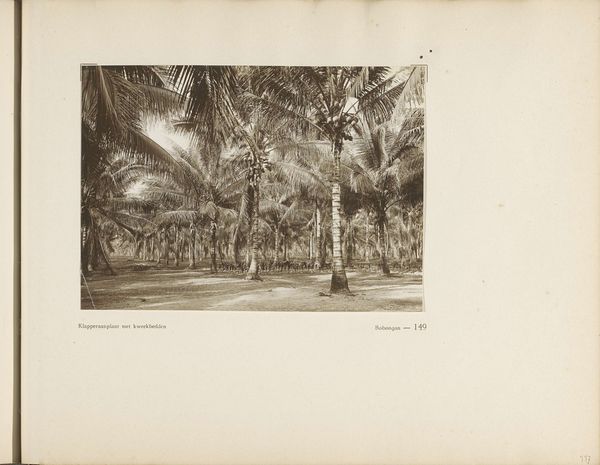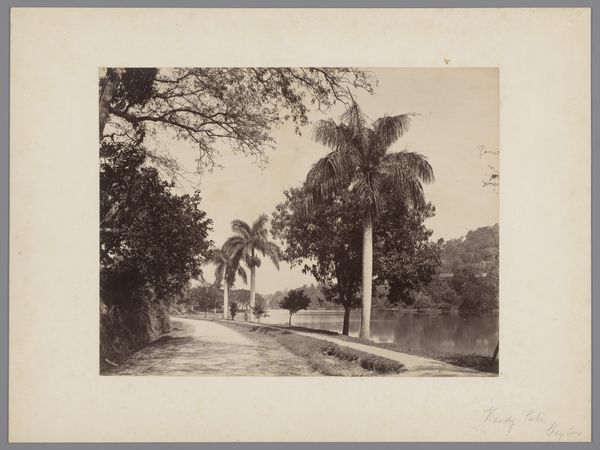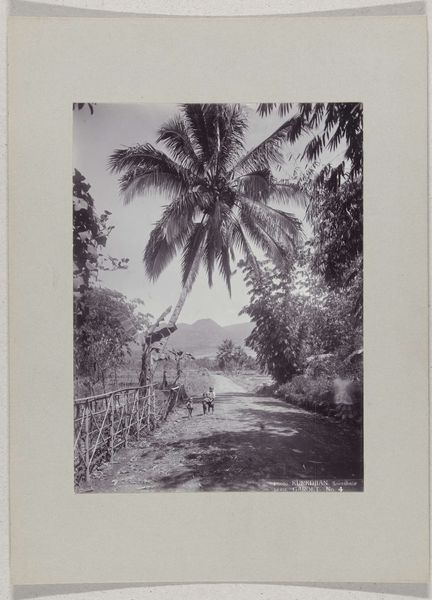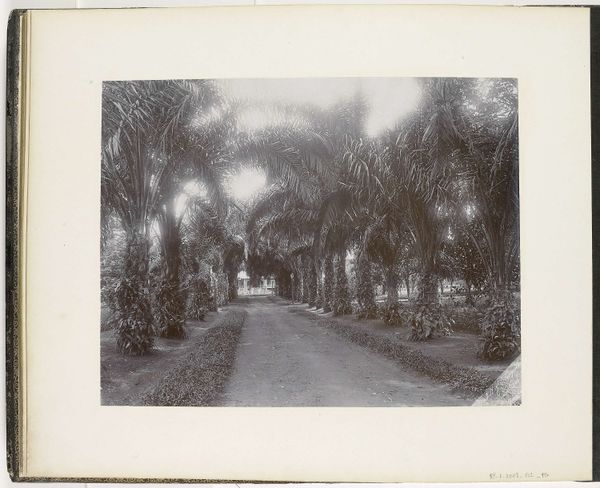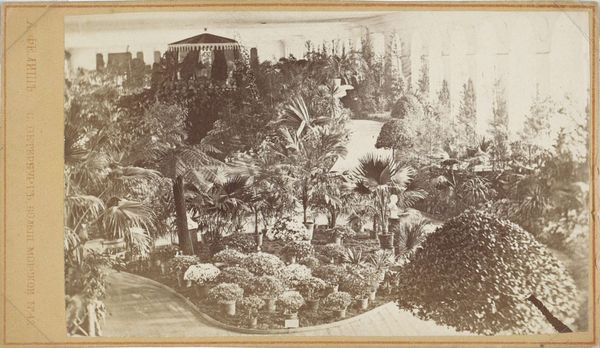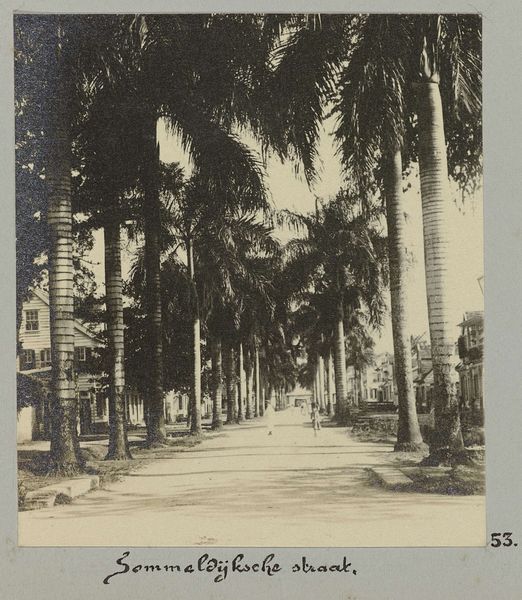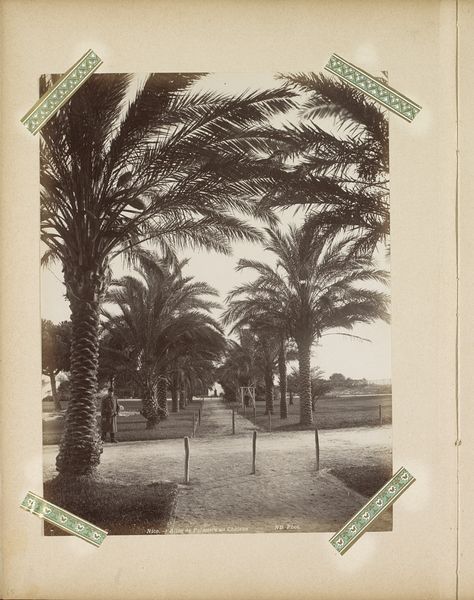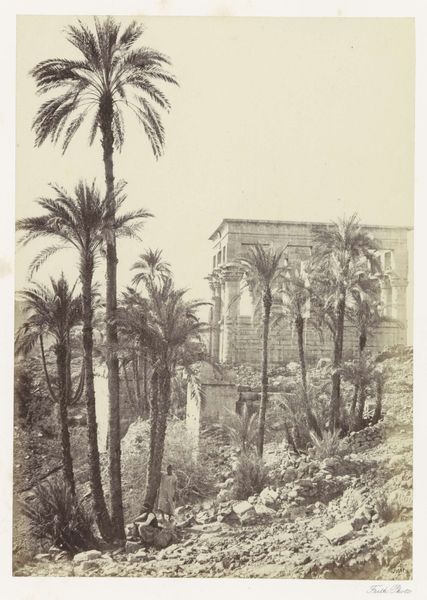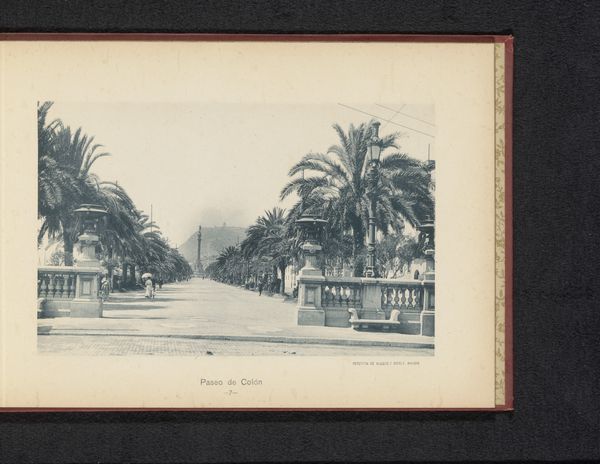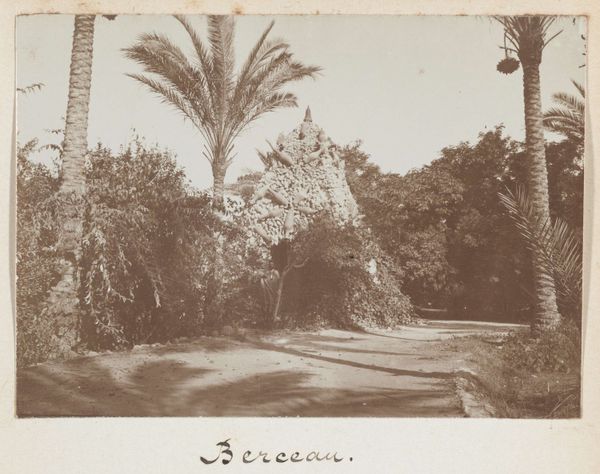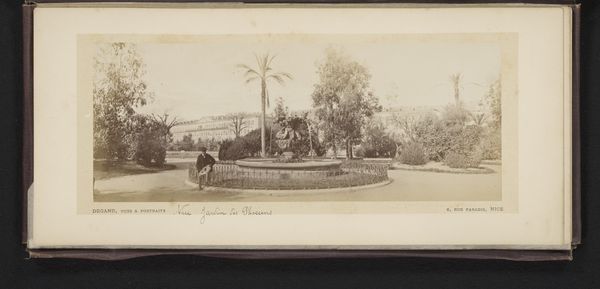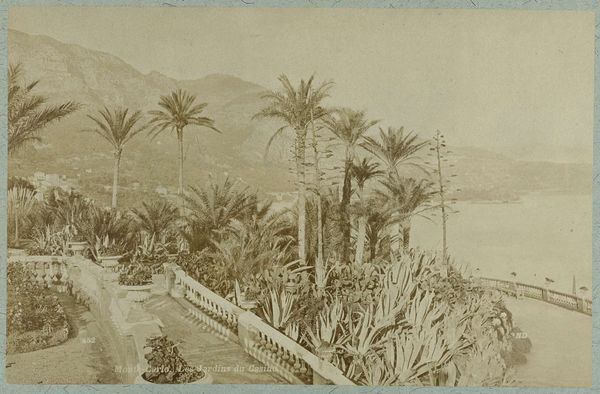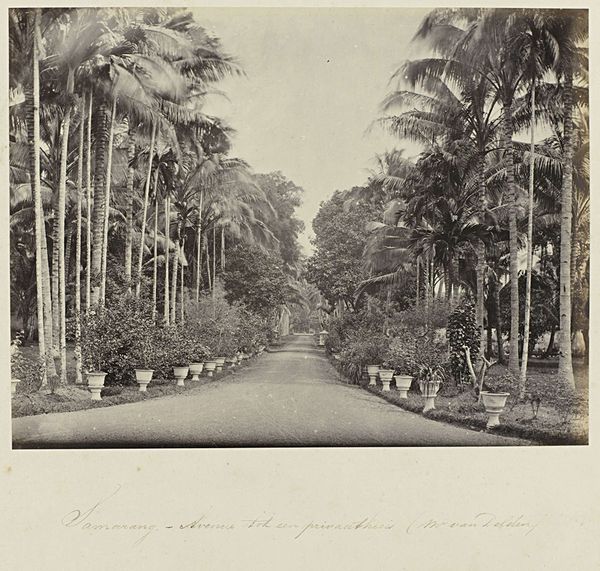
collage, photography
#
tree
#
collage
#
appropriation
#
landscape
#
photography
#
modernism
Copyright: Gherasim Luca,Fair Use
Curator: At first glance, this collage strikes me as a very unsettling Eden, with the severe linearity of the palms acting like bars, like an exotic prison of sorts. Editor: Well, let’s decode this oddity. What we’re seeing is “Jardin botanique, allée des palmiers” or “Botanical Garden, Palm Alley,” created around 1970 by Gherasim Luca. The piece merges photography and collage, hallmarks of the Modernist appropriation. Curator: Luca certainly uses those elements to subvert our expectations of landscape. The added symbols really destabilize the image—hanging implements, diagrams of torture devices… it's almost dreamlike, yet chillingly precise in its details. Do you find this at all beautiful? Editor: It’s a fascinating layering of colonial nostalgia and something far darker. Luca was deeply engaged in the politics of imagery, specifically critiquing the commodification of exoticism through photography, hence "appropriation." This palm-lined avenue likely represented a fabricated paradise for tourists. Curator: Yes, there’s the colonial gaze, turning a blind eye to what lies beneath this façade of beauty and order. I think Luca is offering the subconscious symbols that trouble this image: ideas of control, pain and imprisonment. This work is like a dreamscape revealing something insidious that reality attempts to hide. Editor: Exactly. And by introducing these symbols he invites viewers to actively interpret and challenge power structures inherent in these seemingly idyllic representations. He demands we don't passively accept the romanticized narratives being sold to us. Curator: Which returns me to its haunting mood. Beyond its overt symbols of oppression, is a more subtle disquiet at the piece’s heart. Like a beautiful but psychologically dangerous scene where familiar cultural archetypes, paradise, Eden and the landscape all threaten the dreamer, the viewer, the colonizer… everyone involved. Editor: And it does this by transforming a conventional landscape photo, probably originally produced for colonial authorities, into a space for revolutionary thought. He turns the garden against itself. Quite powerful actually.
Comments
No comments
Be the first to comment and join the conversation on the ultimate creative platform.
